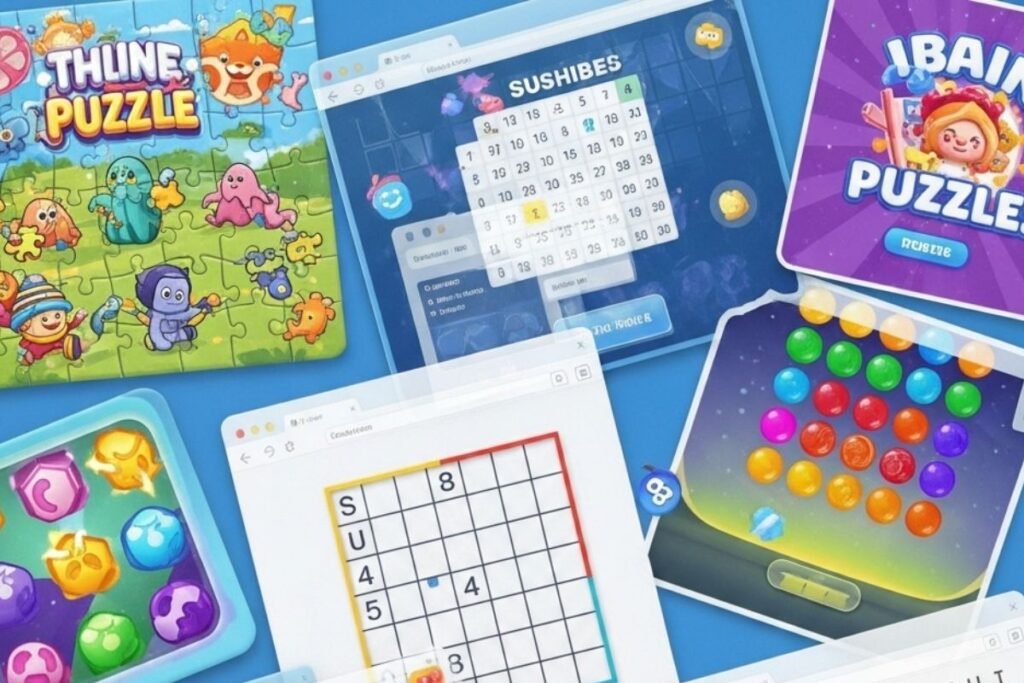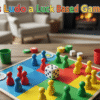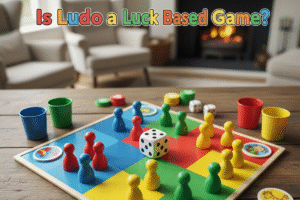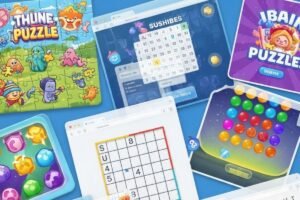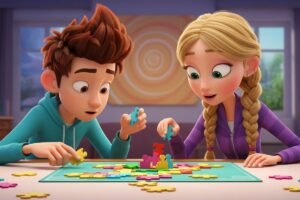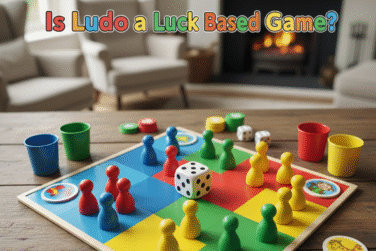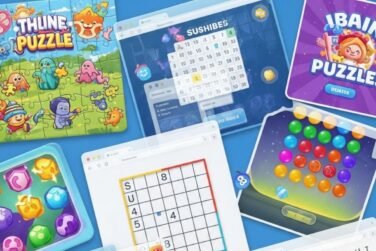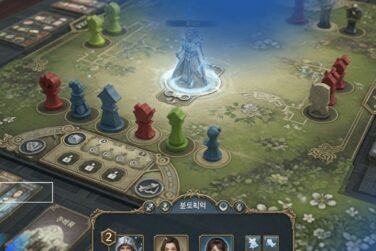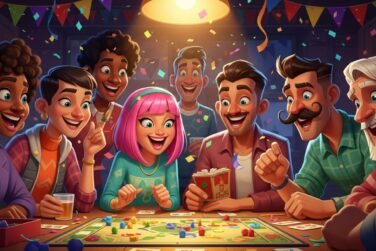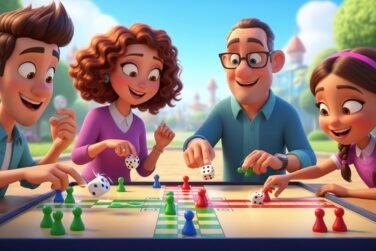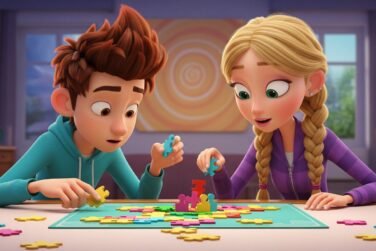Puzzle games have a special kind of magic. They make you pause, think, and solve; all while having fun. From classic jigsaws on a rainy afternoon to fast-paced mobile games that test your reflexes, puzzles come in many forms. And the best part? There’s something for everyone.
Kids enjoy colorful and creative puzzles that build focus and learning, whereas adults tend to prefer more complex games that challenge logic, memory, and strategy. Whether you’re trying to pass time or give your brain a workout, puzzle games are the perfect choice.
These days, puzzle games are everywhere. You’ll spot them on phones, in newspapers, on gaming consoles, and even in real-world escape rooms. Some are super simple and relaxing, while others are just tricky enough to keep you hooked for hours.
In this article, we will explore all the different types of puzzle games, both online and offline. You’ll learn what makes each type unique, which ones are great for kids or adults, and where to find the best ones. From word puzzles and logic games to hidden object challenges and brain teasers, this guide has it all.
Ready to discover your next favorite puzzle game? Or wondering how to get better at puzzle games? Let’s dive in.
Table of Contents
What Are Puzzle Games?
Puzzle games are games built around problem-solving. They challenge your brain to think in new ways. Some focus on logic, others on memory, patterns, or even language. But at their core, all puzzle games ask one simple question: Can you figure it out?
These games come in many forms. You might be arranging pieces, solving clues, guessing words, or finding hidden objects. Some puzzles are visual. Others rely on numbers or words. Many require planning ahead or recognizing patterns. That’s what keeps them interesting — each one feels like a small mystery to solve.
In the past, puzzles were mostly physical. Think of jigsaws, Rubik’s Cubes, or newspaper crosswords. Today, they’ve moved into the digital world. You can now play puzzle games on phones, tablets, PCs, or even in full video game formats. Some are free. Others are part of larger adventure games.
Puzzle games are also flexible in how they’re played. You can enjoy them solo during a quiet moment, or work through one with a group. Kids often start with simple shape-matching games. Adults might prefer logic-based games or complex escape room apps.
No matter your age or skill level, puzzle games offer something valuable. They’re a fun way to stay sharp, relax, and enjoy a sense of achievement with every level or clue you solve.
Why Do People Love Puzzle Games?
Puzzle games have a way of pulling people in. They’re simple to start, but hard to put down. That’s part of the charm. You’re not just tapping buttons — you’re thinking, solving, and improving with each level.
One big reason people enjoy puzzles is the mental challenge. They make your brain work in ways that other games don’t. You plan moves, recognize patterns, and test your memory. Even when a puzzle is tough, it feels rewarding to figure it out.
These games also help you relax. Unlike fast-paced action games, puzzle games slow things down. You can play them at your own pace. There’s no pressure. Just you and the problem in front of you.
For many players, puzzle games are more than just fun. They’re tools for brain training. Some studies suggest they improve focus, memory, and critical thinking. That’s why parents often introduce kids to puzzles early. And why adults keep coming back to them, even years later.
Another reason they’re popular? They’re everywhere. You can play a puzzle game on your phone during a break. Or spend hours on a weekend solving a tricky crossword or escape room. There are puzzles for all moods — quick, relaxing, challenging, or deeply creative.
In the end, puzzle games feel good to play. They make you think, but they also reward you for it. That feeling of solving something on your own? That’s what keeps people coming back.
Different Types of Puzzle Games
Puzzle games come in many styles, each offering a unique experience. Some focus on logic. Others test your memory, vocabulary, or visual skills. Here are the most popular types of puzzle games that people love across all ages.
1. Jigsaw Puzzles
Jigsaw puzzles are among the oldest and most beloved puzzle types. You take a picture, break it into many oddly shaped pieces, and try to fit them back together.
They help improve focus and visual reasoning. You look at shapes, colors, and edges to find the right match. It’s a quiet, relaxing activity — and also very rewarding when the image finally comes together.
You’ll find jigsaw puzzles in both physical and digital forms. Many mobile apps now offer virtual puzzles with hundreds or even thousands of pieces. They’re a great way to pass time without needing much space.
Best for: All ages
Popular examples: Ravensburger Puzzles (physical), Jigsaw Puzzle HD (mobile app)
2. Crossword Puzzles
Crosswords test your vocabulary, knowledge, and wordplay skills. You read a clue, think of the answer, and write it into a grid. Letters connect across and down, so every word affects another.
These puzzles can be easy or deeply challenging. Some are themed, like movies, science, or history. Others rely on tricky word tricks or riddles.
You’ll find crosswords in newspapers, puzzle books, and hundreds of apps online. They’re especially loved by adults who enjoy language-based games.
Best for: Teens and adults
Popular examples: New York Times Crossword, CodyCross, Crossword Jam
3. Word Puzzle Games
Word puzzle games are a broader category. They include crosswords, but also games like word searches, anagrams, and spelling puzzles. These games test how quickly and creatively you can form or find words.
They’re perfect for improving language skills and spelling. Some are fast-paced. Others give you time to think.
Modern word puzzle games are some of the most downloaded games on app stores. They’re great for playing in short sessions and offer daily challenges to keep things fresh.
Best for: Kids, teens, and adults
Popular examples: Wordscapes, Word Connect, Wordle
4. Sudoku
Sudoku is a number-based puzzle game that tests logic, not math. The goal is to fill a 9×9 grid so that each row, column, and box contains the numbers 1 to 9 — without repeats.
At first glance, it looks simple. But once you start solving, it challenges your focus and planning. Every number you place affects the others. One wrong move, and the whole puzzle can fall apart.
Sudoku puzzles come in many difficulty levels, from easy to expert. They’re perfect for those who enjoy slow, steady thinking. You’ll find Sudoku in newspapers, puzzle books, and apps.
Best for: Adults and teens
Popular examples: Sudoku.com app, Microsoft Sudoku, Brainium Sudoku
5. Logic Puzzle Games
Logic puzzles ask you to think deeply. They often give clues, rules, or setups that you must use to find the answer. These puzzles train your brain to spot connections and plan ahead.
Some are simple grid-based games. Others are complex stories with clues hidden throughout. They don’t rely on fast reactions — just smart thinking.
Many modern puzzle video games include logic elements. These games mix beautiful visuals with clever design to create an immersive experience.
Best for: Adults who enjoy deep thinking
Popular examples: The Witness, Baba Is You, Logic Grid Puzzles
6. Match-3 Puzzle Games
Match-3 games are colorful, fast, and highly addictive. The goal is simple: match three or more items of the same type to clear them. Sounds easy — but with each level, new twists are added.
These games test pattern recognition, timing, and strategy. You must think ahead and use power-ups wisely. They’re light, fun, and perfect for quick play.
Match-3 puzzle games are some of the most played mobile games ever. Their bright design and satisfying gameplay make them ideal for all ages.
Best for: Kids, teens, and casual players
Popular examples: Candy Crush Saga, Bejeweled, Toon Blast
7. Hidden Object Games
In hidden object games, you scan detailed scenes to find specific items. The items may be well-camouflaged or hidden in plain sight. These games test your attention to detail and visual memory.
They often come with stories — like mystery or adventure themes. You solve puzzles by finding clues, exploring scenes, and sometimes unlocking the next level.
They’re relaxing and immersive. You don’t need fast hands, just sharp eyes.
Best for: All ages, especially casual players
Popular examples: June’s Journey, Hidden City, Mystery Case Files
8. Riddle and Trivia Puzzle Games
Riddles and trivia games test how much you know and how creatively you think. Riddle puzzles give you clues in the form of clever or tricky sentences. You need to figure out the hidden meaning.
Trivia puzzles are based on facts. You answer questions about history, movies, sports, science, or just about anything. Some games mix both styles to create a more exciting challenge.
These games are great for parties or solo play. They also help you learn fun facts and think differently.
Best for: Teens and adults
Popular examples: Braindom, Trivia Crack, Brain Test
9. Escape Room & Mystery Puzzle Games
Escape room games put you inside a story. You play as someone trapped in a room, building, or situation. To escape, you must solve puzzles, unlock doors, and find hidden clues.
They often feel like a mix of mystery, logic, and exploration. Some are based on real-life escape rooms. Others are full digital adventures you can play on your phone or PC.
These games offer deep gameplay and lots of excitement. They’re perfect for players who enjoy solving multiple puzzles in one long challenge.
Best for: Adults and puzzle lovers
Popular examples: The Room, Escape Simulator, Can You Escape
10. Puzzle Platformer Games
Puzzle platformers are video games where you run, jump, and solve puzzles at the same time. They mix action and thinking. You might need to move objects, unlock paths, or control two characters at once.
These games are not just about timing. They require problem-solving to progress. That’s what makes them so fun — you’re using your brain and your reflexes.
Many puzzle platformers have beautiful visuals and emotional stories too, making them a full experience.
Best for: Teens and adults who like adventure
Popular examples: Limbo, Inside, Trine
11. Physics-Based Puzzle Games
These puzzles follow real-world physics rules. You may need to roll a ball, cut a rope, or launch objects. The goal is to solve each level using gravity, balance, or movement.
They’re fun, playful, and often quite funny. But they still challenge your brain. You’ll need to experiment, fail, and try again to find what works.
Physics puzzles are popular on mobile because they’re easy to pick up and hard to put down.
Best for: All ages
Popular examples: Cut the Rope, Angry Birds, Human: Fall Flat
12. 3D Puzzle Games
3D puzzle games add depth and movement to the classic puzzle format. Instead of flat boards or grids, you solve problems in a three-dimensional space. This could mean rotating objects, navigating mazes, or building structures.
These games test spatial reasoning and visual problem-solving. You need to think about angles, shapes, and how pieces fit in real space.
Many 3D puzzles are also visually stunning. They create immersive environments that pull you in and make the puzzle part of a bigger experience.
Best for: Teens and adults
Popular examples: Monument Valley, Portal, Rubik’s Cube apps
13. Puzzle Games for Kids
Puzzle games for kids are colorful, fun, and simple to understand. They’re designed to help children develop key skills like attention, memory, and coordination. Many also teach shapes, numbers, or letters.
These games are often story-based or theme-based to keep kids engaged. They include matching games, sorting puzzles, and beginner logic challenges.
Most kids’ puzzle games have friendly designs, cheerful sounds, and rewards that keep them coming back.
Best for: Ages 3 to 12
Popular examples: Thinkrolls, Toca Boca, PBS Kids Puzzle Games
14. Puzzle Games for Adults
Puzzle games for adults go deeper. They offer more complexity, subtle clues, and layered thinking. These games push your brain in new directions, often blending logic, language, and pattern recognition.
Some adults play puzzles to relax. Others do it to stay sharp. Many enjoy working through long challenges or competing for high scores.
You’ll find everything from classic games to modern puzzle-adventure blends designed for serious thinking.
Best for: Adults who enjoy strategy or mental workouts
Popular examples: The Witness, Sudoku.com, Brain It On!
15. Free Puzzle Games
Free puzzle games are easy to find and fun to try. Many are available on app stores or websites without any cost. You can download them in seconds and start playing right away.
These games come in all styles — word, logic, number, or matching. Some offer daily challenges, offline play, or leaderboards.
Free puzzle games are great if you want something casual or if you’re just getting started.
Best for: All ages, casual players
Popular examples: Wordscapes, Cut the Rope, Unblock Me
Puzzle Game Types by Age and Purpose
| Puzzle Game Type | Best For | Skill Trained | Format | Difficulty |
| Jigsaw Puzzles | All ages | Visual reasoning | Offline/Online | Easy–Hard |
| Crossword Puzzles | Teens & Adults | Vocabulary & memory | Offline/Online | Medium |
| Word Puzzle Games | Kids & Adults | Language skills | Online | Easy–Hard |
| Sudoku | Adults | Logic & focus | Offline/Online | Medium–Hard |
| Match-3 Games | All ages | Pattern recognition | Online | Easy |
| Escape Room Puzzles | Adults | Problem-solving & logic | Online/IRL | Hard |
| Logic Puzzle Games | Adults | Deep thinking | Online | Medium–Hard |
| Puzzle Games for Kids | Children (3–12) | Focus & creativity | Offline/Online | Easy |
Online vs Offline Puzzle Games
Puzzle games come in two main formats: online and offline. Both have their own charm, and the best choice often depends on how and where you like to play.
Online puzzle games are digital and easy to access. You can play them on your phone, tablet, or computer. Most are available as free apps or browser games. Some offer daily challenges, leaderboards, and multiplayer options. They’re perfect when you want something quick, portable, and always available.
These games are also regularly updated. New levels and features keep things fresh. You can pause anytime, save your progress, and play again later. Plus, many online games now offer hints and help if you get stuck.
On the other hand, offline puzzle games give a more hands-on experience. Think of jigsaw puzzles on your table, Sudoku in a newspaper, or a crossword in a puzzle book. These games are often more relaxing. You’re away from screens and distractions. For many people, that makes the experience more satisfying.
Offline puzzles also allow group play. Families and friends often gather to solve a big puzzle together. That social connection adds another layer of fun.
So, which is better? That depends on what you want. Online games are fast, flexible, and full of variety. Offline games are screen-free, calming, and often more personal.
In the end, you don’t need to pick just one. Many puzzle lovers enjoy both. A crossword on paper in the morning, and a mobile word game at night — it’s the perfect mix.
Online vs Offline Puzzle Games: A Quick Comparison
| Feature | Online Puzzle Games | Offline Puzzle Games |
| Platform | Phone, tablet, computer | Books, boards, printed puzzles |
| Accessibility | Instant access via apps or browser | Requires setup or physical copy |
| Game Variety | Huge selection, updated regularly | Limited by collection |
| Portability | Highly portable, play anywhere | Less portable, needs space and setup |
| Features | Hints, progress saving, leaderboards, multiplayer | No tech features, purely physical |
| Updates | Regular new levels and events | Static content |
| Relaxation | Quick breaks, but screen time involved | Calming and screen-free |
| Social Play | Online multiplayer or friend invites | In-person group play (family & friends) |
| Best For | Fast fun, challenges, on-the-go play | Slower pace, screen-free moments, quality time |
Choosing the Best Puzzle Game for You
With so many types of puzzle games out there, choosing the right one can feel overwhelming. But it doesn’t have to be. A few simple questions can help you find your perfect match.
Start with your mood. Do you want something calm and relaxing? Try jigsaw puzzles or word searches. Looking for a mental challenge? Go for Sudoku or logic puzzles. Want something fast and fun? Match-3 games or trivia apps are a great fit.
Think about your goal. If you’re looking to sharpen your mind, logic-based games are a good pick. Word puzzles help with vocabulary and memory. Visual puzzles improve focus and pattern recognition.
Consider your time. Some games take just a few minutes per level. Others need more time and concentration. Pick something that fits your daily routine.
Also, choose the right format. Prefer something hands-on? Go for offline puzzles like board games or books. Always on the go? Mobile puzzle games are easy to play anywhere.
And don’t forget age. Kids need colorful, easy-to-follow games. Adults may enjoy deeper challenges or longer story-driven puzzles. Some games work well for all ages, depending on the difficulty you choose.
If you’re new to puzzle games, start simple. Try a few styles. Once you find what clicks, dive deeper.
There’s no one best puzzle — just the best one for you.
Conclusion
Puzzle games come in many shapes and styles. From classic jigsaws and crosswords to creative mobile apps and deep logic adventures, there’s a puzzle game for every kind of player.
These games do more than entertain. They sharpen your thinking, boost your memory, and offer a calm break from everyday stress. Some puzzle games are fast and fun. Others are slow, thoughtful, and deeply rewarding.
Whether you’re a child learning shapes or an adult looking for a brain workout, puzzle games can meet you where you are. You can play alone, with friends, online, or offline. And with so many free options out there, it’s easy to try something new.
So don’t just stick to one kind. Explore. Try different types of puzzle games. See which ones excite your mind or help you unwind. Once you find the right type, you’ll discover why so many people love puzzles and why they keep coming back for more.
Your next favorite game might be just one piece away.
Frequently Asked Questions (FAQ)
What are the main types of puzzle games?
Puzzle games come in many types, including jigsaw puzzles, word games, Sudoku, logic puzzles, match-3 games, escape rooms, and more.
Which puzzle games are best for adults?
Adults often enjoy logic puzzles, Sudoku, crossword games, escape room games, and strategy-based puzzles that offer more complex thinking.
Are puzzle games good for kids?
Yes, puzzle games help kids improve focus, memory, and creativity. Games like matching, shape-sorting, or simple logic games are great for young minds.
Can puzzle games improve brain function?
Many puzzle games support brain health. They improve memory, problem-solving, and attention span by keeping the mind engaged and active.
Where can I play puzzle games for free?
Free puzzle games are available on Google Play, App Store, and websites like CoolMathGames or PuzzleGame.com. You can also try apps like Wordscapes or Cut the Rope.

